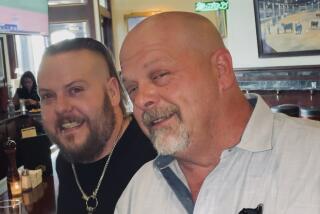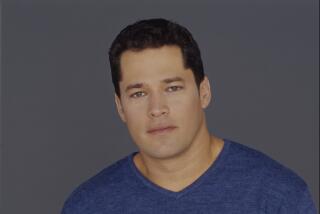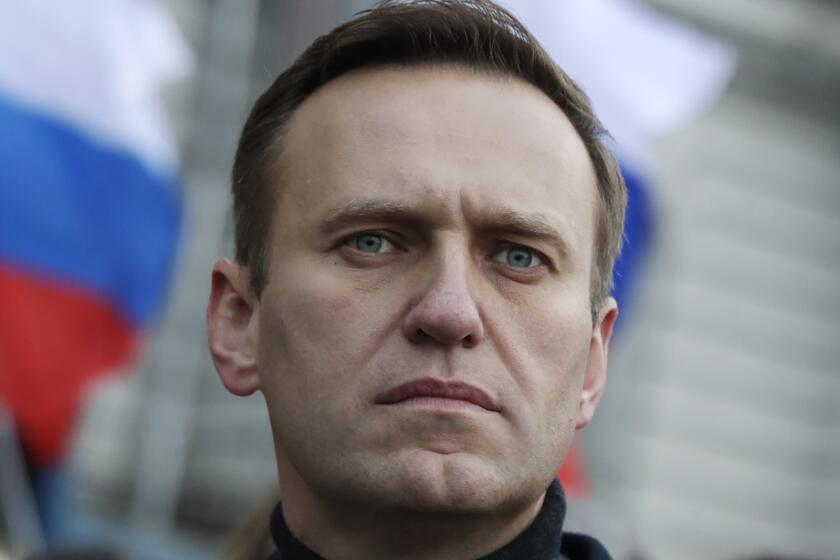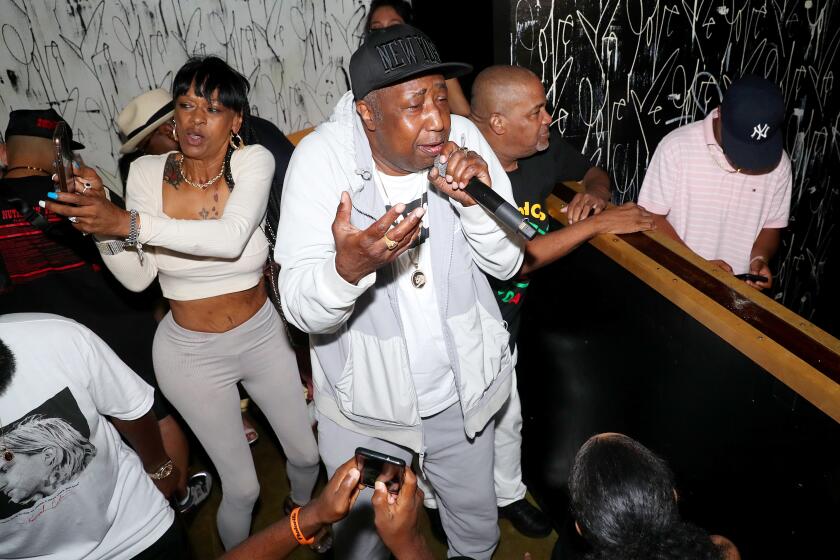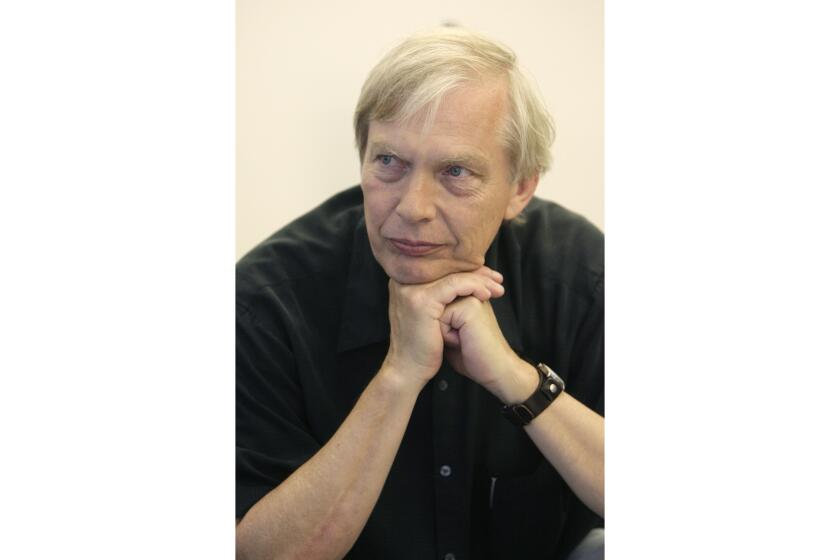From the Archives: Massive Heart Attack Kills Actor David Janssen, 48
David Janssen, television’s quintessential actor, died early Wednesday morning after apparently suffering a massive heart attack. He was 48 and had no prior history of heart problems.
Janssen, who starred in the very successful TV series “The Fugitive” in the 1960s and, more recently, in “Harry O,” suffered the coronary attack at about 4 a.m. at his Malibu beachfront home. He was pronounced dead in the emergency room of Santa Monica Hospital an hour later.
His longtime friend and fellow actor, Stuart Whitman, told reporters he was driving by the Janssen home about 4:30 a.m. when he saw a paramedic ambulance and fire truck parked outside. Whitman said he went inside and found the paramedics working frantically to restore Janssen’s heartbeat.
They had taken him out of bed and they were working on him,” Whitman said. “It must have been half an hour altogether. Then one of the paramedics said, ‘I think I’ve got a heartbeat,’ and they took him to the hospital.”
Whitman said he drove Janssen’s wife, Dani, to the hospital.
Ruggedly handsome—acceptable to men and down right attractive to women viewers—Janssen was almost the perfect TV hero.
That special quality was probably most evident in the series “Harry O,” produced in the mid-1970s and still seen in reruns today.
He played private detective Harry Orwell, a bit cynical—brave but hobbled by the physical infirmities of a hard life catching up with him as he worked his way toward 50.
He was TV’s top detective, a knight errant with a bad back, a man who would rather walk the beach on a foggy morning than fight his way through the complexities of a human condition. But his contemplative life was always interrupted by a lovely woman, a hard-luck kid or a good friend who needed his help.
Harry would unfailingly respond, of course, but his old sports car was always on the fritz, he didn’t have the $300 to bail it out of the garage, and he’d end up consulting a bus schedule to figure out how to get from point A to point B while unraveling the truth.
Janssen’s Harry Orwell was a man who used his world-weary charm to finesse officious secretaries and bureaucrats.
“Why should I answer you?” said one particularly unhelpful functionary.
Replied Janssen/Orwell with his customary half-smile and self-deprecatory humor, “Because my feet hurt?”
“Harry O” is considered by most TV critics as a small masterpiece of the television form and Janssen an example of the special charisma that very few actors have before the television camera.
Janssen was rated by many TV critics, along with James Arness of “Gunsmoke” and James Garner of “Maverick” and “The Rockford Files,” as an actor who understood best how to use the small screen.
As one critic put it, Janssen was “an actor able to create a sense of character through the rhythms of his speech, the way he cocked his head or shrugged his shoulders, an actor alert to all the minute physical and vocal maneuvers that define our ordinary individuality.”
He played gentle, tentative heroes, perfect for television in the 1960s and 70s but perhaps not quite right for motion pictures. While TV brought him fame and fortune, Janssen’s motion picture career was far less distinguished.
Consider the titles” “Bonzo Goes to College.” “Dondi,” “Ring of Fire,” “Hell to Eternity,” “Macho Callahan,” and “Once Is Not Enough,” to name just a few.
It was television that saved Janssen from a career of B-movie obscurity. First, the actor and producer Dick Powell chose him to portray “Richard Diamond,” one of the first of hard-boiled TV detectives.
In the 1957-60 series, Janssen’s secretary, “Sam,” appeared only as a pair of legs and a voice. It was Mary Tyler Moore’s first TV series role.
Then came “The Fugitive,” in which he played a Midwestern doctor, Richard Kimble, wrongly accused of murdering his wife constantly on the run from the police and trying to find the real killer, a one-armed man.
After “The Fugitive” ran its course, there was what seemed an unending procession of made-for-TV movies and mini-series such as the recent “Centennial.”
Some were good, some not-so-good, but Janssen was always in demand, always working.
He started acting at the age of 9 in a Buster Crabbe and Johnny Weissmuller film called “Swamp Fire.”
He was born David Meyer on March 27, 1931, in the small town of Naponee, Neb., the son a local banker and a Ziegfeld Follies girl.
After his parents were divorced, Janssen’s mother brought him to Los Angeles. He graduated from Fairfax High School, attended UCLA for a semester, then dropped out to go into summer stock.
After an unsuccessful attempt to land Broadway roles, Janssen returned to Hollywood, where he signed to a contract by 20th Century-Fox and took his stepfather’s last name.
The studio bleached his hair blond, unsuccessfully tried to talk him into ear surgery to lessen his resemblance to Clark Gable, then dropped him entirely.
Universal singed Janssen and his streak of B-pictures began. He did 32 movies for Universal, few of them memorable.
“I played an ‘agreer,’ “ Janssen later said of this phase of his career. “The star would say, ‘Don’t you think so.’ I’d agree with him and disappear from the picture.”
Last came “Richard Diamond,” “The Fugitive,”—one of the highest rated TV series of its time—stardom, and a never-ending stream of scripts and movie offers.
There were more than 100 movies in all, many of them made for TV. At the time of his death, Janssen had just finished a major film, “Inchon” with Sir Laurence Olivier and had begun work on a TV movie, “Father Damien.”
From the Archives: Clark Gable Dies at 59
From the Archives: Laurence Olivier, Called Greatest Actor of His Time, Dies
From the Archives: Isabel Sanford, 86; Won Emmy for Best Actress in a Comedy
From the Archives: Baseball’s Joe DiMaggio Dies at 84
Actor who was a master of light comedy as the star of “Maverick” and “The Rockford Files”
More to Read
Start your day right
Sign up for Essential California for the L.A. Times biggest news, features and recommendations in your inbox six days a week.
You may occasionally receive promotional content from the Los Angeles Times.
